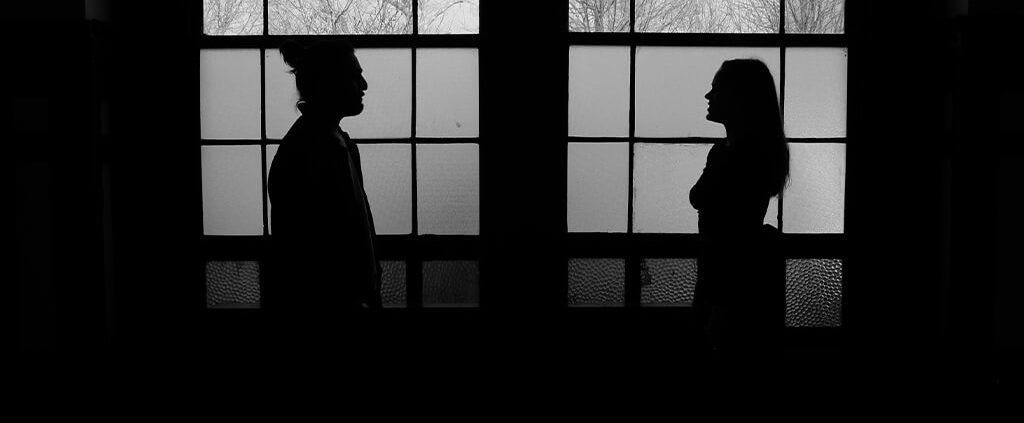Why I Need People Who Aren’t My Fans
One of the things I (mostly) love and occasionally find annoying about my husband: He is a relentless truth-teller.
At times he thinks I want to be reminded of scriptural principles (Which I do, I do! But not when I am sinning, for Pete’s sake). He wouldn’t do it in an unkind, self-righteous way; he’s also plainspoken about the sin he struggles with. And to me, he just gently, honestly tells me what I need to hear at the right time. The white lies greasing the wheels of so many relationships—you’re always beautiful, you look perfect in every outfit, etc.—are simply not welcome in our marriage.
Gah.
But in my husband, I’ve also recognised something valuable and rare: trustworthiness. He doesn’t compliment me just to make me feel all gooey inside. His looks of admiration come from sharing a trench with me in our battles. I’m not perched on a pedestal; we’re intimate allies. He helps me anticipate places I could be wounded by my own sin—or wound others.
To be fair, I think everyone who’s been gracious enough to be honest with me would all qualify as “fans”, because they cared enough to say something. A Tim Keller podcast convicted me that the times I don’t say something to someone ultimately boils down to the fact that I don’t care enough. I care more about my own comfort, approval, or a less genuine version of our relationship.
Still, it’s challenging, hovering between courage and defeat as I absorb the ways I’m hurting people, or irritating people, or just far from perfect. I’d wobble between gratitude that my blind spots wouldn’t grow to cancerous dimensions. and wishing I could spend a few days alone at the beach, burying my head in the sand.
To be brave and own up to my faults
But God’s kindly reminded me of how utterly blind sin makes us toward our own junk (John 3:19-20). It may be the thing that our spouse, or our kids, or our parents, or our friends could tell us in a heartbeat that we wrestle with (or fail to).
In my case, it’s the way my anger—a habitual weakness—toward someone feels so righteous, so justified, but is really a plank jutting out of my own eye. And it’s often with my kids; sometimes I’m just not putting on gentleness and patience, no matter their offense.
Don’t we all like to think we’ve got our sin pretty well under control? My tendency is to:
1) underestimate the impact of my sin on other people. Is it really that big a deal, compared to all the good stuff I manage to do?
2) amplify my good intentions, while minimizing the other person’s.
3) declare any faults of mine to be the result of circumstances, but any fault of theirs to their own character.
4) resort to “woe is me!” when I discover my sin, utterly shocked that someone of my tremendous character could (temporarily, of course) stoop so low.
So I’m learning to respond to my husband (or mother/children/friends/co-workers) as much as I can with a calm “You’re right about that. I see that in how I. . . ” Whether I can or can’t respond that way, I pray for God to open my eyes to what I’m stuck in—and who He longs for me to be.
Then, when I can empathise with their hurt—and genuinely, specifically apologise and ask for forgiveness from all involved—I’m learning do so without using words like “if” or “maybe” or “but” (“sorry. . . but”). And to ask if they’ll be kind enough to tell me if/when I do it again.
I didn’t learn this all at once. But like a muscle, it’s gotten easier now that I do it more often.
Finding our “no people” who truly love us
As I started to see the way my husband and family’s honesty shapes beauty in me, I’ve started to thank God that He’s got people in my life who are close enough and courageous enough to not be “yes men”, but be “no men.” People who love me enough to call me out on my stuff.
Let me be clear: Other people are not always right. I know some of us have grown up in families where criticism is wielded far more than affection—a poor representation of God, who sings songs of love over us (Zephaniah 3:17) and calls us the apple of His eye (Psalm 17:8).
So, don’t throw your discernment out the window, okay? We must compare others’ view of truth with Scripture, and let God make the call about who we become. It’s okay to say, “I’m grateful you’ve told me this. I want to take some time to pray about this and talk to other people as well and ask what they’re seeing.”
The Bible’s pretty clear that, even with the Spirit, we need an entire Body of people to wrestle us toward holiness (Ephesians 4:11-16). We all desperately need people knowledgeable and strong enough not to be taken in by our skilful manoeuvring.
I’m not talking about just any friend, or someone we like talking with, or even someone who will ask hard questions. I’m talking about someone who’s got the gift of discernment, who’s wise enough (even if they’re younger, or less illustrious in their career) and strong enough to gently confront us about how we speak to our family members and build their sense of self-worth. Or how we behave at work. Or respond to criticism.
So I’ve started to take my closer friendships to that end. I ask friends specifically, “I know I tend to struggle in areas like x, y, and z. Would you tell me if you sense me bowing to those idols—or in some other area I can’t see?”
Perfection is God’s, even as we work hard to change
As I struggle with my own teachability and my desire to blame a person right back, or with becoming capsized by shame, a timely podcast helpfully reminded me that perfection is God’s, not mine. Naturally I want to duck and cover, just like Adam and Eve. So I go and camp out on Philippians 3:8-9—
“For His sake I have suffered the loss of all things”—all things I cling to for my own sense of perfection—“and count them as rubbish, in order that I may gain Christ and be found in him, not having a righteousness of my own that comes from the law, but that which comes through faith in Christ, the righteousness from God that depends on faith.”
I need my perfection, my sense of acceptance and being “enough”, to come from one place and nowhere else. (And I need someone to remind me of this when I’m confronted and I look as if I might choke.)
Looking back, I’ve become a different person because people I love and trust tell me the truth. Even in my moments of red-hot anger, I now know how to create space so I don’t sin against my kids, then evaluate my contribution to the conflict. Yes, I still get angry. But more and more, it’s God’s ways that get the upper hand inside me.
I long to become the unblinded, godly version of myself that comes from willingly looking my sin in the eye. I long to love God more because I’ve been forgiven much (Luke 7:47). I like that the only way to get there is through deeper and deeper humility. I like that I now ask for the “red pen” in my life, and that it takes a lot stronger criticism to ruffle me.
Your turn: Looking back, what constructive criticism changed your life?
This article was originally published on the writer’s blog here. This version has been edited by YMI.













Leave a Reply
Want to join the discussion?Feel free to contribute!